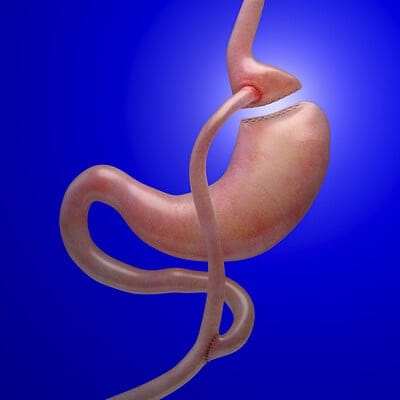There are several cosmetic surgeries that are effective and perform well whether you want to lose weight or wish to be of average weight. When a candidate is seriously struggling with their weight, a procedure known as Bariatric Surgery in Islamabad will be considered as a last option.
On this page, you will learn about the basics including its procedure, results, benefits, cost and many more. So, take a moment and read the following details.
An Overview – Bariatric Surgery:
Bariatric surgery is a surgical procedure that helps individuals who are severely obese to lose weight by reducing the size of their stomach or bypassing a portion of the small intestine. It is also known as weight-loss surgery or metabolic surgery.
The primary goal of bariatric surgery is to limit the amount of food the patient can eat, thus reducing calorie intake, and as a result, promoting weight loss. It is usually recommended for individuals with a body mass index of 40 or greater, or those with a BMI of 35 or greater with other obesity-related health problems, such as type 2 diabetes, high blood pressure, sleep apnea, or heart disease.
Types Of Bariatric Surgery:
There are several types of bariatric surgery that are commonly performed, each with its own unique approach and benefits. The four main types of bariatric surgery are:
- Gastric bypass surgery.
- Sleeve gastrectomy.
- Adjustable gastric banding.
- Biliopancreatic diversion with duodenal switch.
Each type of bariatric surgery has its own benefits and risks, and the choice of surgery will depend on factors such as the patient’s overall health, weight loss goals, and preferences. A consultation with a bariatric surgeon can help determine the best approach for each patient.
Success Rates And Long-Term Outcomes:
In general, bariatric surgery has been shown to result in significant weight loss, with patients losing an average of 50-70% of their excess weight within the first year after surgery.
Long-term outcomes of bariatric surgery depend on various factors such as patient compliance with postoperative dietary and lifestyle changes, regular exercise, and follow-up care. Some studies have shown that weight loss and improvements in health conditions can be sustained for up to 10 years or more after surgery. However, it is essential to note that some patients may experience weight regain or develop complications over time, such as malnutrition or gastrointestinal problems.
Topmost Benefits:
Generally, the benefits of Bariatric Surgery in Islamabad are countless and amazing. Some major and common benefits are mentioned below:
- Significant and long-lasting weight loss.
- Improved quality of life.
- Remission or improvement of type 2 diabetes.
- Reduction of high blood pressure.
- Decrease in sleep apnea symptoms.
- Improvement in joint pain.
- Reduced risk of certain cancers.
- Improved mental health.
Eligibility For Bariatric Surgery:
Eligibility for bariatric surgery typically depends on several factors, including body mass index (BMI), overall health, and previous attempts at weight loss. Here are some general guidelines for bariatric surgery eligibility:
- A BMI of a person must be 40 or higher.
- Previous weight loss attempts.
- If you are experiencing obesity-related health problems.
- You must be above 20 age.
- Undergoing patients must have good overall health.
- Breastfeeding and pregnant women aren’t eligible.
It is important to note that eligibility for bariatric surgery may vary depending on the specific surgery and the patient’s circumstances. A bariatric surgeon can provide more information and help determine if a patient is a good candidate for surgery.
Pre-Operative Evaluation And Preparation:
Pre-operative evaluation and preparation are critical steps to ensure the safety and success of bariatric surgery. Here are some common steps in the pre-operative evaluation and preparation process:
- Discuss your medical history with your doctor.
- Submit initial medical tests including blood tests etc.
- Avoid smoking tobacco or drinking alcohol.
- Do not take blood-thinning medications.
- Maintain your diet and keep yourself hydrated.
Surgical Procedure – Step by Step:
The specific steps of a bariatric surgery procedure will vary depending on the type of surgery being performed, but here are the general steps involved in a gastric bypass procedure, one of the most common types of bariatric surgery:
- Step 1: The patient will be given general anaesthesia, which will put them to sleep and ensure they do not feel any pain during the procedure.
- Step 2: The surgeon will make several small incisions in the abdomen to allow access to the stomach and intestines. In some cases, a larger incision may be made.
- Step 3: The surgeon will use a surgical stapler to create a small pouch out of the upper part of the stomach. This limits the amount of food that can be eaten at one time and reduces the production of hunger hormones.
- Step 4: The surgeon will detach the small intestine from the bottom of the stomach.
- Step 5: The surgeon will re-route a section of the small intestine and connect it to the new stomach pouch. This allows food to bypass the rest of the stomach and the upper part of the small intestine, reducing the absorption of calories and nutrients.
- Step 6: The surgeon will re-connect the remaining part of the small intestine to the new connection point.
- Step 7: The surgeon will close the incisions with sutures or staples and cover them with sterile dressings.
Post-Operative Care And Recovery:
Post-operative care and recovery are critical to ensuring the success of bariatric surgery. Here are some common steps involved in the post-operative care and recovery process:
- Most patients will stay in the hospital for several days after surgery to recover.
- The surgeon will recommend painkillers for managing any discomfort or pain.
- You have to monitor for any complications or side effects like bleeding and infection.
- Maintain a healthy diet according to your doctor’s advice.
- Patients will be encouraged to start light exercise, such as walking, as soon as possible after surgery to promote healing and prevent blood clots.
- You will have regular follow-up appointments with the surgeon to monitor the progress and address any issues.
- In case of any severe reaction, inform your surgeon immediately.
The Cost And Its Impacting Factors:
The cost of Bariatric Surgery in Islamabad may vary from patient to patient. Keep in your mind that it is a delicate and sensitive surgery that cannot be performed at a cheap cost. Also, there are some factors that can affect the cost of the treatment, such as:
- Expert surgeon’s fee.
- Clinic’s location and reputation.
- Type of bariatric technique.
- Other additional charges.
Moreover, you can ask our experts anything related to its cost or factors. The cost will be calculated after reviewing your condition and requirements.
How long does bariatric surgery take?
The duration of bariatric surgery can vary depending on the specific procedure being performed. On average, the surgery itself typically takes around one to four hours, but this can vary based on factors such as the patient's condition and the surgeon's expertise.
How long will it take to see results after bariatric surgery?
Results after bariatric surgery vary, but most patients start seeing significant weight loss within the first few months.
How much weight can I expect to lose after bariatric surgery?
Weight loss after bariatric surgery varies, but on average, patients can expect to lose 50-70% of their excess weight.
Book Your Appointment With Us!
Therefore, if you are tired or struggling with weight loss, feel free to consult Enfield Royal Clinics for successful bariatric surgery. Here we have experienced and professional plastic surgeons who can give you satisfying results. So, don’t wait and book your appointment right away!
Our Doctors
Dr. Abida Sardar
Dr. Abida Sardar, a leader in aesthetics, brings expertise from international workshops, focusing on advanced techniques in cosmetology.
View ProfileDr. Maryum
Dr. Maryam Malik, a board-certified dermatologist, excels in surgical, medical, and cosmetic dermatology. Renowned as Islamabad.
View ProfileDr. Aysuha Khan
Dr. Ayusha Khan, with nearly 10 years of experience, is a trusted Aesthetic Physician in Islamabad, specializing in skin, hair, and nail treatments.
View Profile








